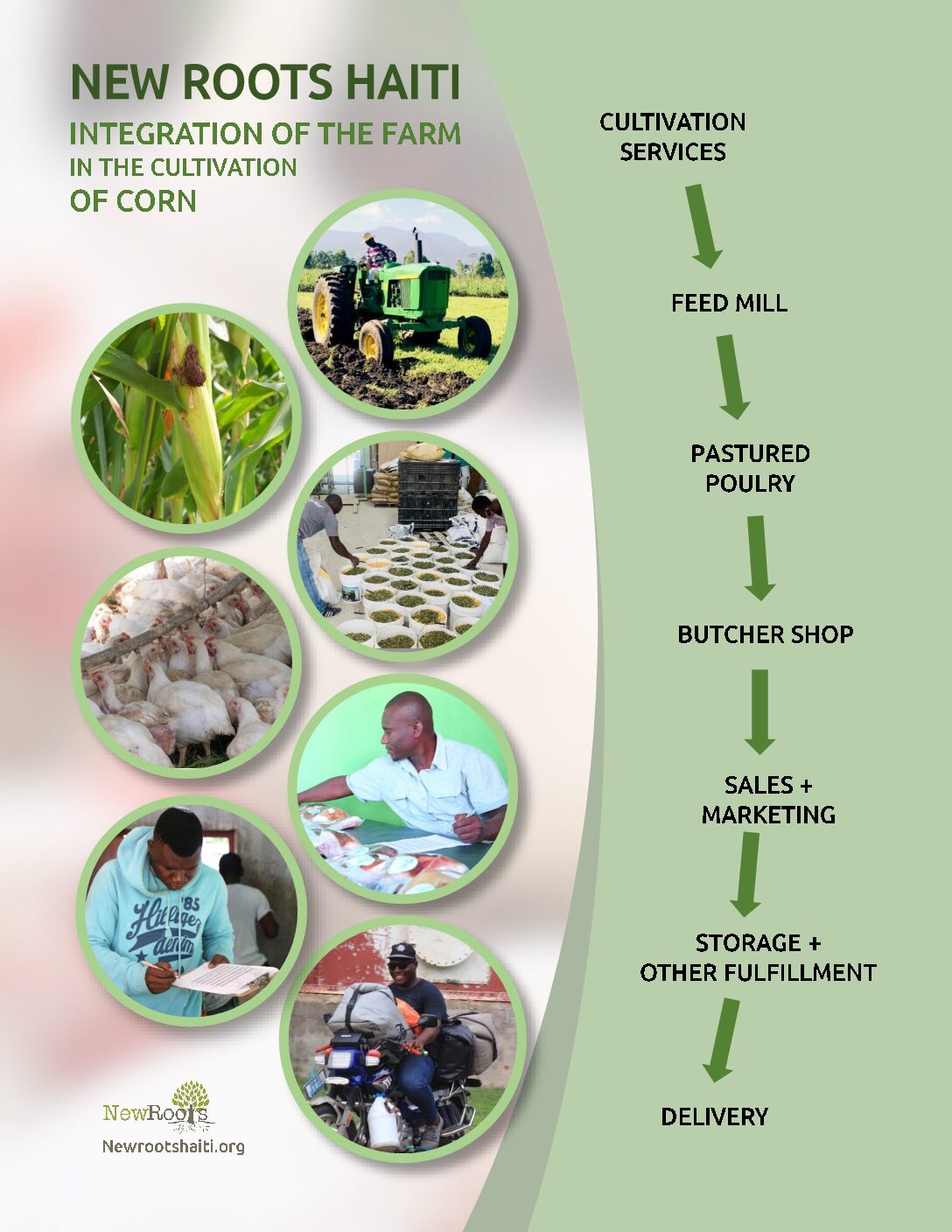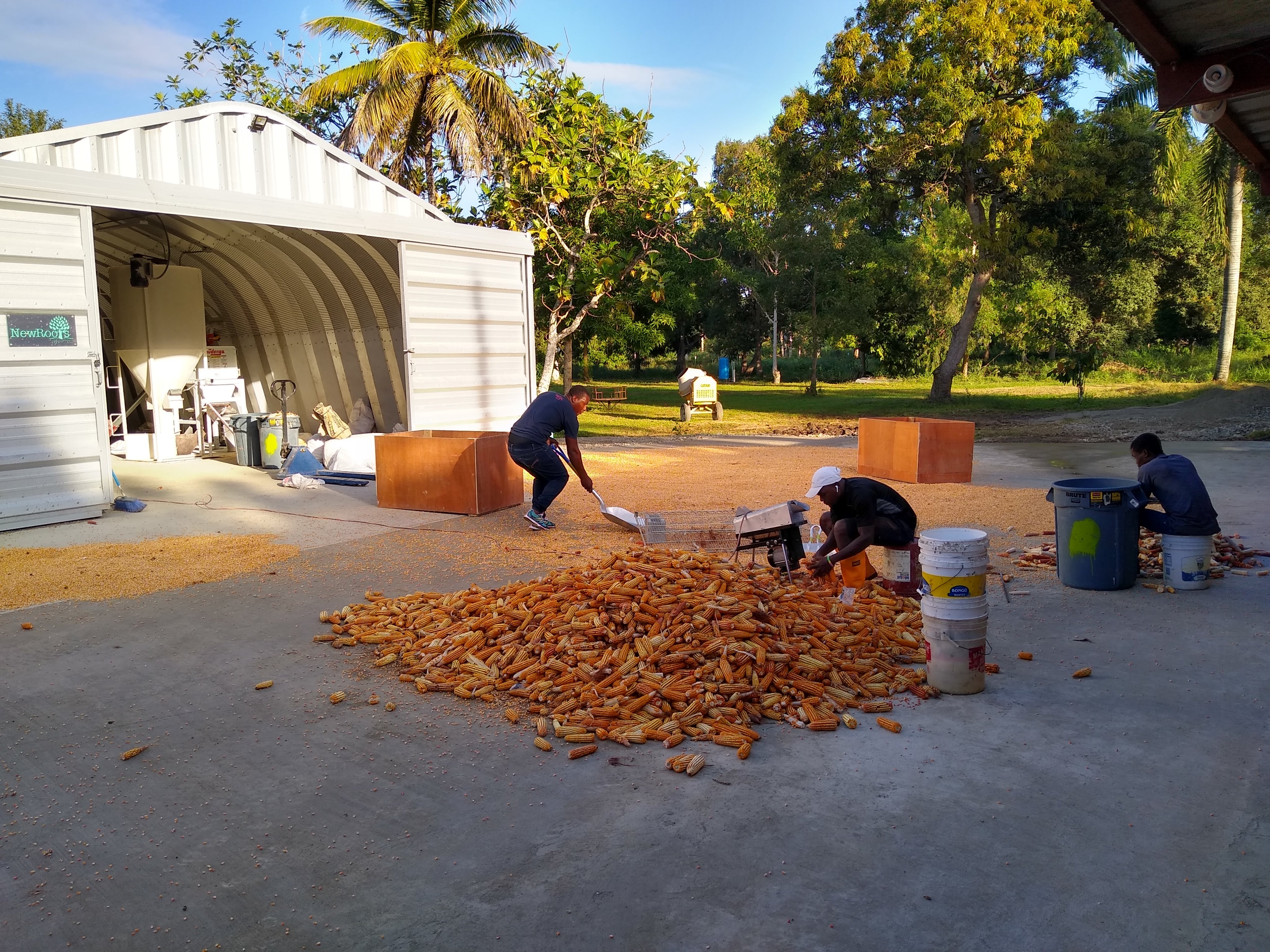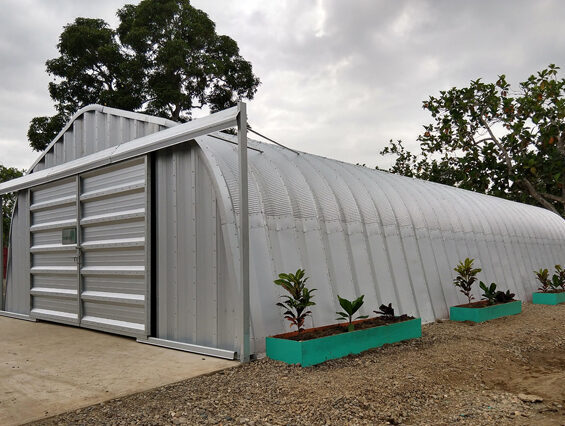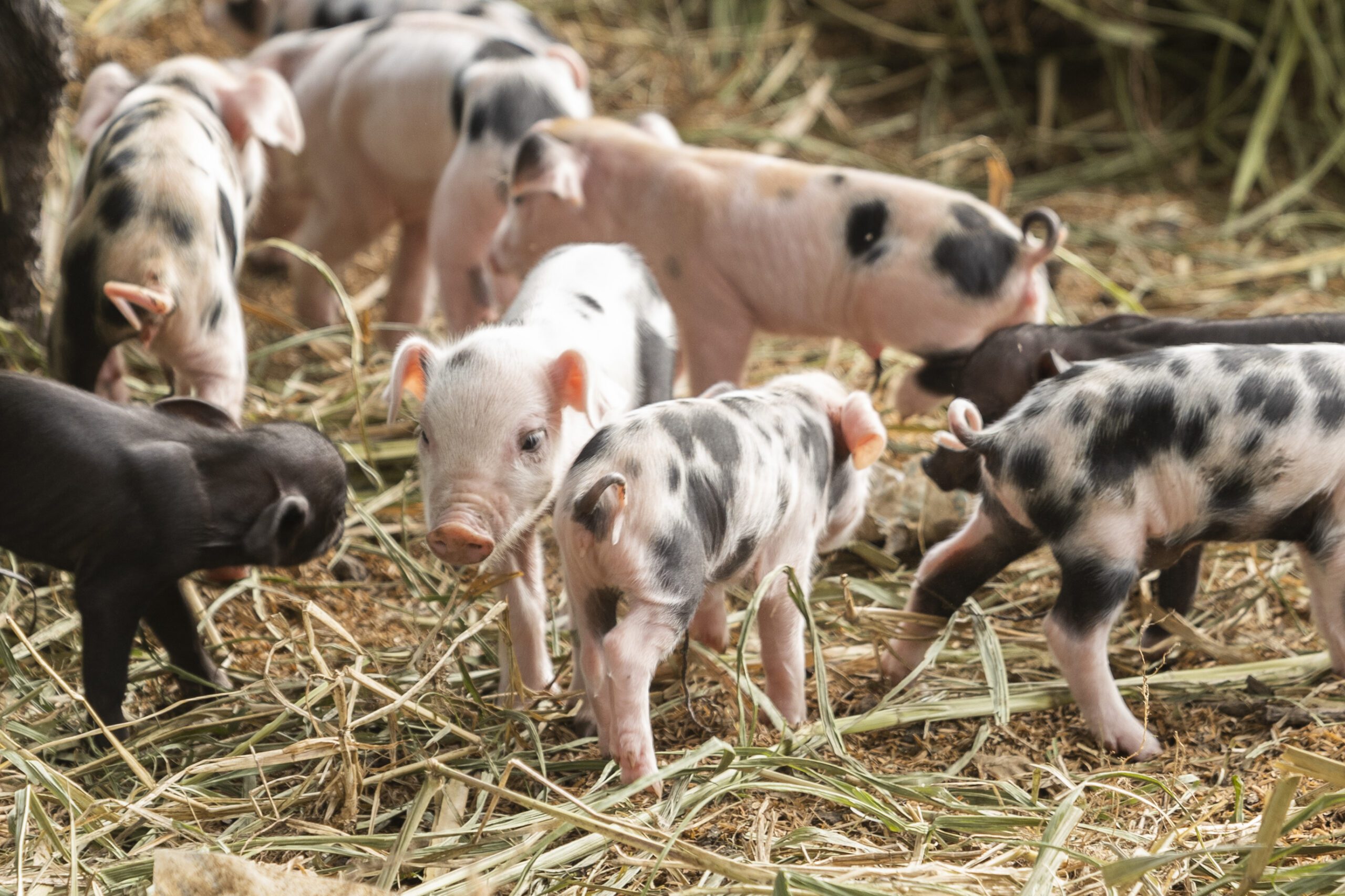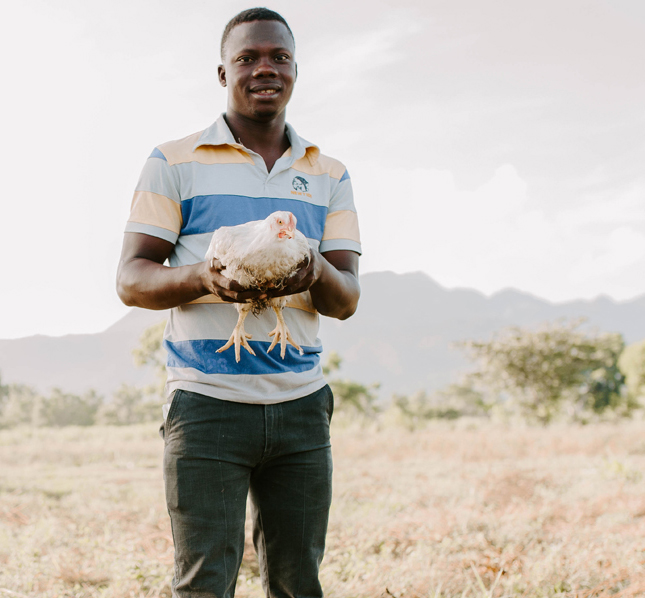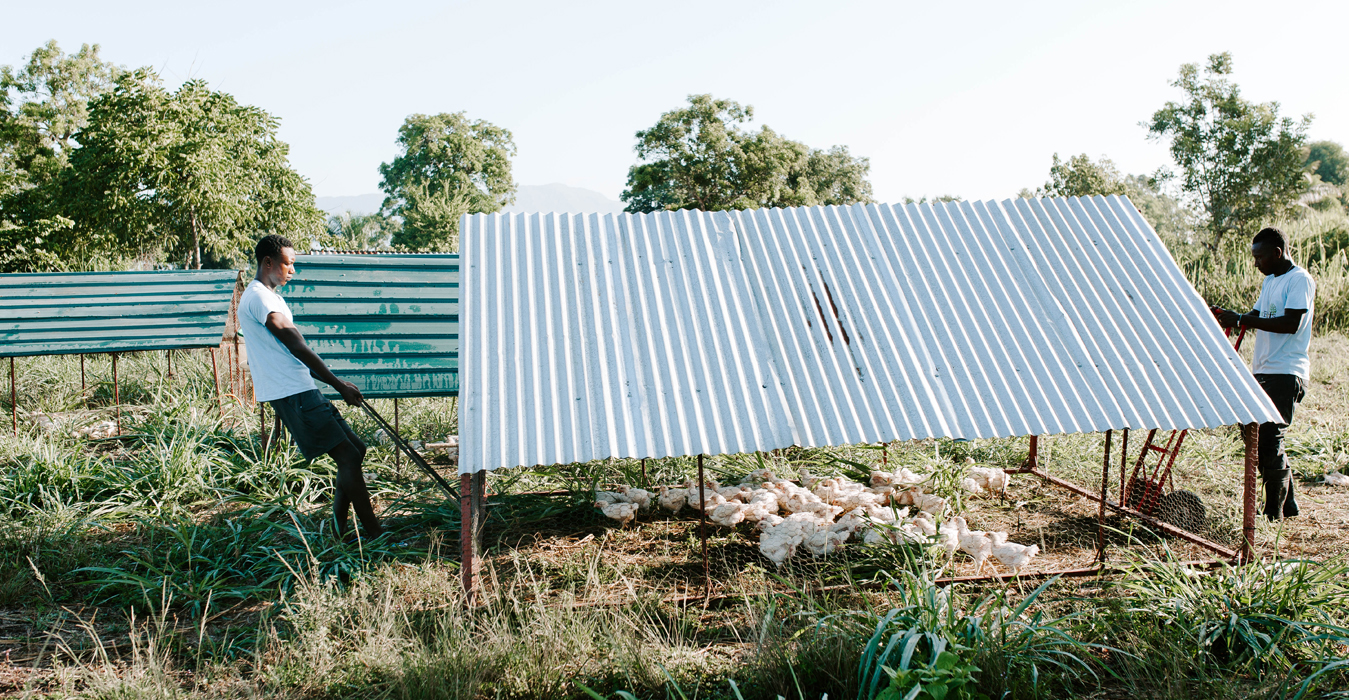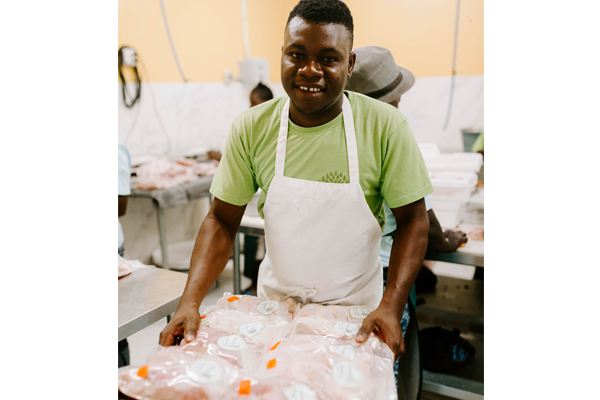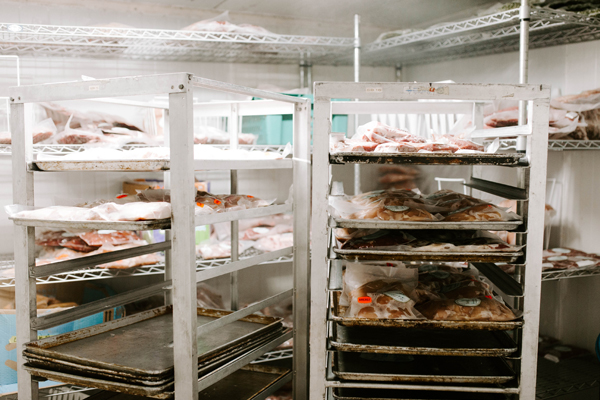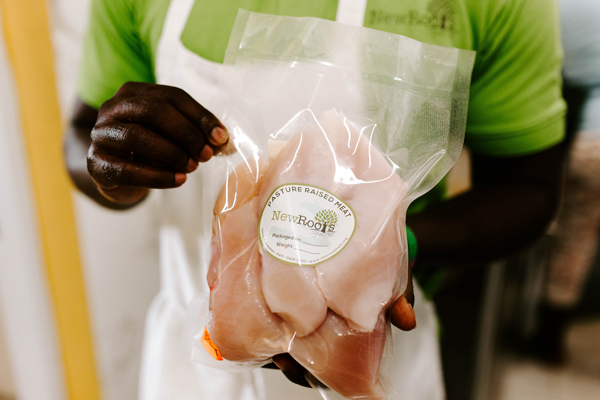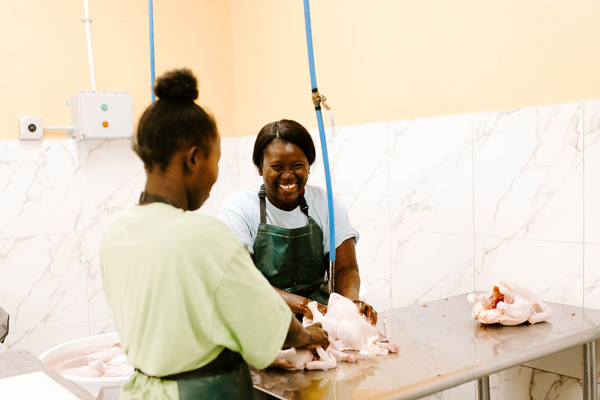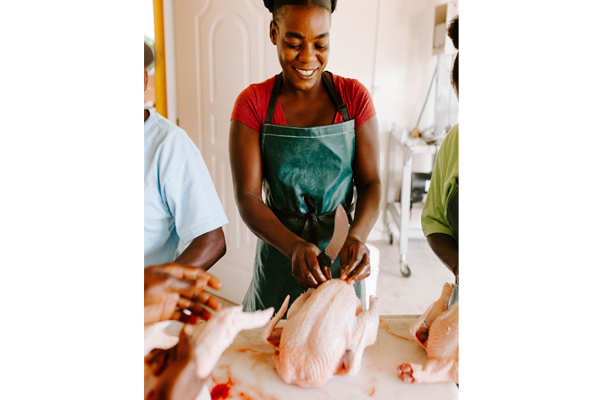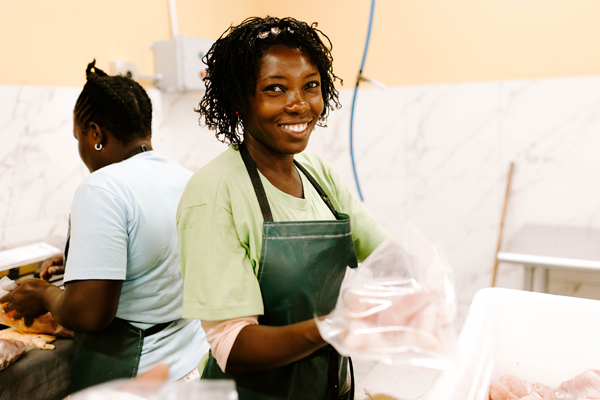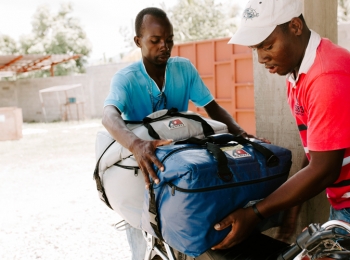Economic Development
Economic Development

In July 2016, New Roots developed an educational farm where we teach local farmers a holistic way to farm. Our focus is on pasture raised chickens, but we also have pigs, cows, corn, and soy beans.
First and foremost, our vision is Empowerment through Job Creation. It is estimated that 70% of the population is unemployed and that 2 out of 3 Haitians live on less than $2 a day. The only job opportunity in our village is farming, however, most of the farm responsibilities fall on elderly men who own or rent the property. There are very little opportunities for the younger generations to carry on this work. With the practices that are standard here, there is very little profit earned by farmers.
Over the years we have learned that one of the most valuable things that NRH can bring to the agricultural sector is post harvest processing. Rural agriculture has been growing raw materials, but with the lack of infrastructure and resources the value adding elements of agriculture have not been developed.
New Roots Haiti has worked hard to expand vertically and develop a business models that helps create markets, skills, and resources for small share hold farmers. Often the most valuable asset that a farmer holds is their land. We want to help farmers maximize potential revenue off of their land to provide for their families.
NRH is focused on transformational change in the community of Chiron. We believe job creation is a tool to create dignity in lives. We listen too, work with, and build programming that improves the lives of farmers within our community.
1. Cultivation




2. Feed Mill
In the past we used to purchase all of our chicken feed from the Dominican Republic. One of the main components in chicken feed is corn, which local farmers know how to grow, but in Haiti, theres simply no market to sell it in.
In order to invest this money directly into our community, we built a feed mill.
We routinely purchase corn from over 200 different families within our region, which adds $15,000 annually to our local economy. Our desire is for this number to double or even triple. This money goes directly into the hands of the farmers, and is money that is NOT being used for importing products.
This money represents jobs for local farmers, success of their efforts, and opportunities for their children.
3. Pastured Poultry
Until the 80’s, Haiti was self sustainable in poultry production. At that time chicken breasts became popular in the US and large producers were left to try and find a place to sell their drumsticks. Haiti had the lowest import tax at the time, and became a dumping ground for places like Purdue and Foster Farms.
Today, most of the chicken available in Haiti is frozen drumsticks imported from the United States. We are one of the few large scale farms selling locally grown chicken.
Our animal husbandry methodology is based largely on the American Pastured Poultry Producers Association (APPPA). Essentially, instead of raising our animals in barns, we raise them directly on pasture, in small moveable coops/ pens. Each day the coops are moved forward, providing the animals with fresh grass and bugs to eat. As they move across the land, they are fertilizing and revitalizing the land, which is deprived of vital nutrients due to decades with out crop rotation.
Although Chicken is our main enterprise, we also raise cows and pigs.
4. The Butcher Shop
The butcher show is another tool that we use to differentiate our products and services. It is also another way that we are able to employe more people, specifically Women, and add nutrient dense food into the local community. Providing clean, professionally packaged products allows us to compete with products that were only previously being imported. Working in the butcher shop is a sought after job locally. It’s a fun environment where we have the tools to work fast and efficiently. Great commodore is formed among the staff. In Haiti no part of an animal is wasted, every part is used. There are many parts of a chicken that we do not sell that are made accessible to the staff and the community. These parts are also some of the most nutrient dense parts that are great for nutrition.
5. Delivery
Due to our rural location, our staff hand delivers our products directly to the customer. We sell our meat to local restaurants, hotels, orphanages, schools, and families.
Five days a week, our meat is packed into coolers, strapped on to a moto, and delivered all over Northern Haiti.
